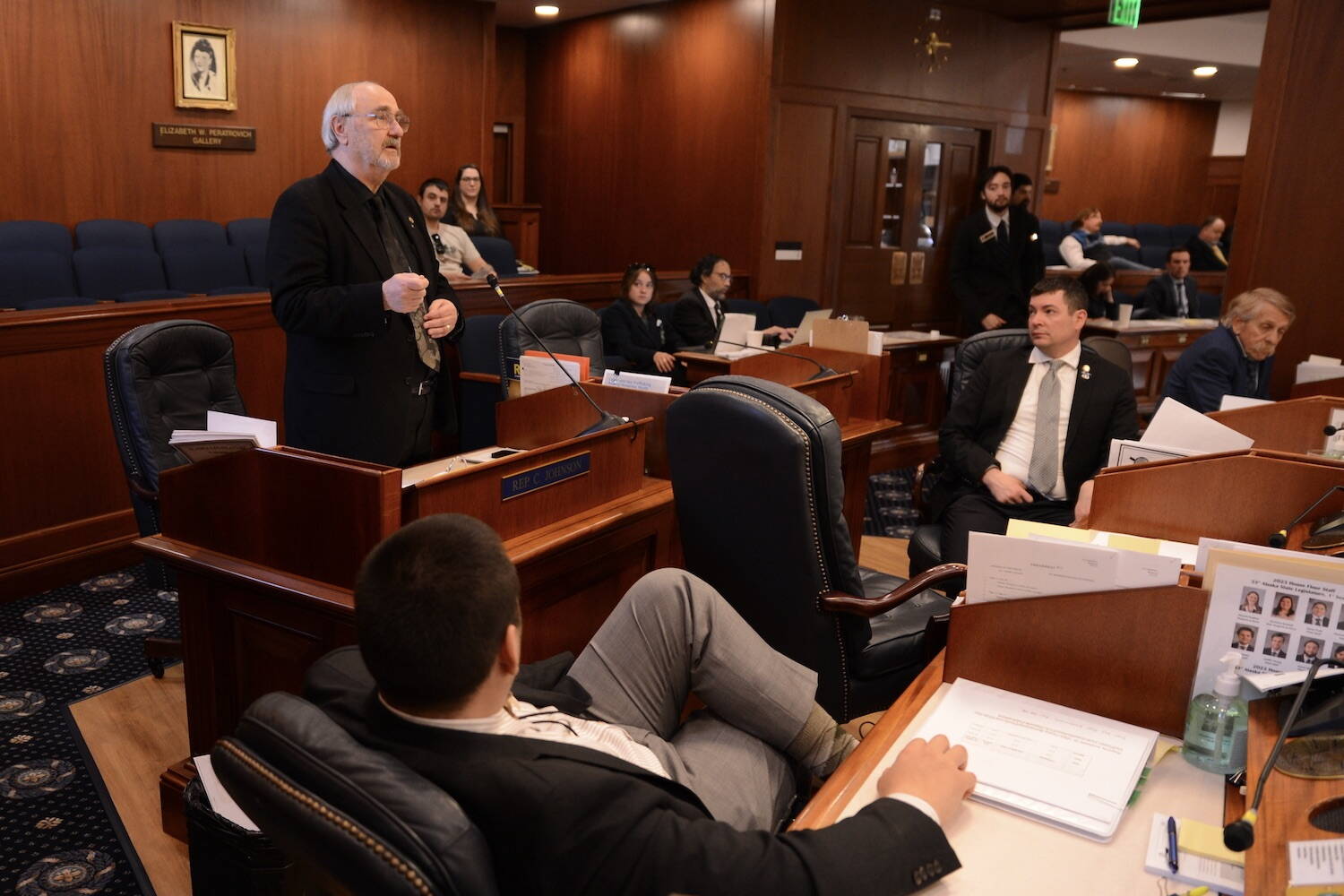Under legislation passed Thursday by the Alaska House of Representatives, police searching for a lost hiker could obtain cell phone and satellite phone location data without a warrant.
The House approved House Bill 316 by a 38-1 margin after moving it forward with unusual speed, and the Senate has referred to its state affairs committee for further discussion.
The measure is modeled after similar laws in other states and is known as the “Kelsey Smith Act.”
Smith was an 18-year-old who was abducted and murdered in Kansas in 2007, and her family has since advocated legislation that would allow law enforcement to more quickly locate a missing person in an emergency.
Under HB 316, a communications company must provide the location of a phone to a law enforcement agency or dispatch center upon written request if the agency believes the phone is with a person experiencing an “ongoing emergency that involves the risk of death or serious physical harm.”
“This is a piece of legislation that I hope is never used,” said Rep. Craig Johnson, R-Anchorage, who sponsored it.
Rep. David Eastman, R-Wasilla, and some other lawmakers said the bill raises concerns about civil liberties. There might be some people who don’t want the government to be able to track them, he said.
After some lawmakers raised the possibility that the request system could be abused, the House amended the bill to make misuse a class A misdemeanor.
Rep. Julie Coulombe, R-Anchorage, said she initially wasn’t supportive of the bill, but the amendments satisfied her concerns.
“These are situations where you have to be careful, because if you don’t consider the civil liberties issue, it can go awry,” she said.
In an emotional speech, House Majority Leader Dan Saddler, R-Eagle River, said the bill is personal to him. He has a son with autism, and he worries about what might happen if his son wanders away.
“This is a bill about real people. It’s not theoretical. It’s not about how many civil liberties can dance on the head of a pin,” he said.
“It’s not theoretical, it’s about ways to save lives,” Saddler said.
Other bills passed Thursday and Friday:
• In other business Thursday, the House approved laws that allow the owner of a self-storage facility to more easily obtain a lien against a renter who fails to pay for their storage unit. House Bill 97, which was approved by a 27-13 margin, also prescribes how long the owner of the unit must wait before selling or disposing of property left in an unpaid unit. Rep. Mike Prax, R-North Pole and the bill’s sponsor, said Alaska is the only state in the country without laws pertaining specifically to storage units.
• At the request of Gov. Mike Dunleavy and the state fire marshal, the House also approved a measure on Thursday that revises the laws pertaining to commercial fireworks in Alaska. House Bill 146 would put commercial fireworks rules in regulation, rather than law, allowing the Division of Fire and Life Safety to adjust the rules without legislative approval. The House approved the bill on a 39-1 vote and advanced it to the Senate.
• On a 16-0 Friday vote, the Alaska Senate approved a measure that would close a gap in the state’s telemedicine laws. Senate Bill 91, sponsored by Sen. Matt Claman, D-Anchorage, would allow telemedicine involving “multi-disciplinary care teams,” groups of multiple specialists, including dieticians, physical therapists and speech therapists. Claman said the bill was inspired by a constituent with ALS, or Lou Gehrig’s disease, which affects the nerves along the spinal cord. That constituent currently makes quarterly flights to Seattle, Claman said, and the bill would help her and others like her. SB 91 is awaiting referral to House committees for further debate.
• Also by a 16-0 vote on Friday, the Senate voted to revive the state’s citizen advisory commission on federal areas. The 12-member commission would collect feedback from Alaskans on proposed changes to federal land-use rules, then make recommendations to the state and federal government. The commission was de-funded in 2017 as part of cost-cutting efforts. Senate Bill 34, restoring the commission, now goes to the House.
• James Brooks is a longtime Alaska reporter, having previously worked at the Anchorage Daily News, Juneau Empire, Kodiak Mirror and Fairbanks Daily News-Miner. This article originally appeared online at alaskabeacon.com. Alaska Beacon, an affiliate of States Newsroom, is an independent, nonpartisan news organization focused on connecting Alaskans to their state government.

